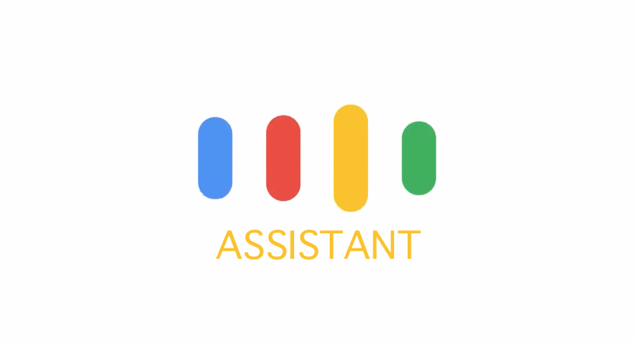Google’s push on Android has now moved several notches in the right direction, as we witness the (re)awakening of a giant called Alphabet.
At a high level, Google brought voice search AI into the picture with GA and Google Home, brought Android apps to Chromebooks, ushered in the Android-powered Pixel line of smartphones, and gained a little more control over the Android ecosystem in the bargain.
In short, Alphabet is making it amply clear: “Don’t mess with our Android.”
Even though Alphabet has limited control over the vast Android ecosystem itself, the company has come to the shocking realization that it, by itself, can be one of the biggest competitors in the Android space – and control it from the outside as well as the inside.
Alphabet is now on the hunt for more control over Android: how it’s deployed, back-compatibility of new apps and features, how and when security updates are pushed and other pressure points. But it is equally looking at Android as a highly viable revenue conduit into Alphabet’s core advertising business.
What is Alphabet Doing About It?
With Android 7.0 Nougat came the “holding back the goodies” aspect of Android. Google Assistant, and even incremental updates to the OS itself, like 7.1.1, never made it to the bulk of Android devices until much later. Even now, only 2.4% of all Android devices are on Nougat. The most-installed OS version is Android 6.0 Marshmallow, with 31.3 percent market share of all Android devices.
The second act is the bringing of voice search to smart devices in the guise of Google Assistant. A lot of people don’t realize that Google Assistant is everything the Google Home represents. It is nothing less than the center point of Google Home. Neither its music-playing ability nor its search capability are bigger than what GA means to Google.
Google might not be a pioneer in voice-based interaction, but it is a trailblazer in the search space. Now, put search dominance and voice capability together in a pot, add some Android Pay action, throw in some Maps functionality, maybe a pinch of home automation opportunities, and what you have is a recipe for long-term sustainability.
All these elements represent future revenue opportunities, and on smart mobile devices like the Pixel and Google Home, they can tremendously increase user engagement for Google’s core advertising business. GA also offers a viable alternative input method to the usual tap, type and swipe, opening up its services to display-less smart devices as well.
The shift from “type-search-read” and “type-search-listen”, to “talk-search-read” and “talk-search-listen”, is one of tectonic proportions. The way we interact with the web is controlled by the Input/Output (I/O) on the device we use. In short, you can’t talk to a TV unless it’s smart. If you do, you’re not all there.
Conversely, that also means that a device that is voice-capable offers a new way to interact with the Internet and its content. Of course, visual support and feedback for voice interaction are fiercely loyal cohorts of voice capability, but the addition of voice offers tremendous possibilities on its own as well.
How does Google Assistant Benefit Alphabet’s Android Push?
While Google Assistant isn’t yet capable of moving the needle significantly for a near-hundred-billion-dollar revenue earner like Alphabet, it is setting the stage for a massive Android movement.
Exploiting Android’s current strong position – and, more importantly – momentum in the mobile space, Alphabet is using Google Assistant to create a device-agnostic, but proprietary and Android-friendly, “smart personal assistant” for potentially billions of connected devices from thousands of manufacturers launching over the next decade and beyond.
By making Google Assistant available to all Android 6.0 Marshmallow and higher devices, Alphabet is stretching its arm further into the Android system that it so badly wants to gain more control over, as we saw earlier.
Amazon is trying to do the same with Amazon Alexa, but it’s taking a different approach. Alexa is bound to specific “Skills” and commands rather than a treasure trove of information like GA. And Amazon, while it’s got a massive catalog of products to piggyback on, does not have the advanced search capability that comes with GA.
Amazon will win a hefty market share as a result of its sheer bull-headedness in making something work, no doubt. But GA is the true revolutionary, with the potential to upend the way we browse the Internet, the way find our way about town, the way we make payments online and just about everything else we do online.
If Alphabet pushes GA integrations as fast and as hard as it’s pushing its cloud computing agenda, very soon, GA is going to be a familiar feature on smart TVs, smart home appliances, connected cars, smart watches and an infinity of other products that it can reach only through Android. At the very least, they’ll have hundreds of millions of consumers going “Ok, Google” all day.
And it’s going to be possible because Android is out there. Really out there.
Android is a very important platform in more ways than one. It is the foundation of Google’s dominance in various areas of mobile hardware and software technology. It represents a ticket to enter OEM devices and maximize its reach. It sends a tremendous amount of web traffic into Google’s service ecosystem. And it represents one of the most valuable acquisitions Google has ever made.
As a driver of Alphabet’s growth sustainability, Android ranks alongside Search, YouTube, Pixel and the like, but it’s refreshing to see Google make frequent and smart moves around Android, and by using Google Assistant, to ensure its longevity as a future-relevant business.
Thanks for reading our work! Please bookmark 1redDrop.com to keep tabs on the hottest, most happening tech and business news from around the world. On Apple News, please favorite the 1redDrop channel to get us in your news feed.



